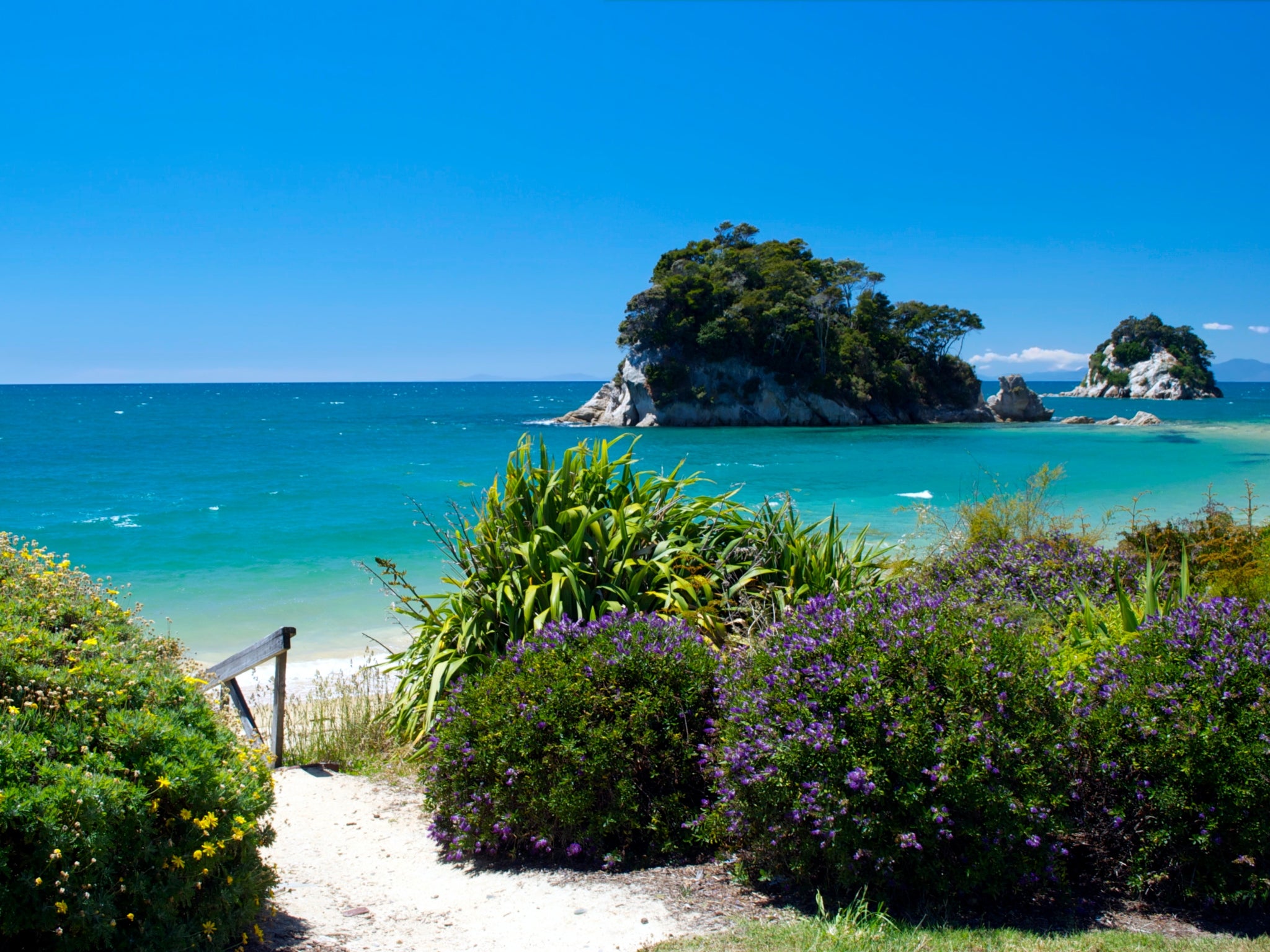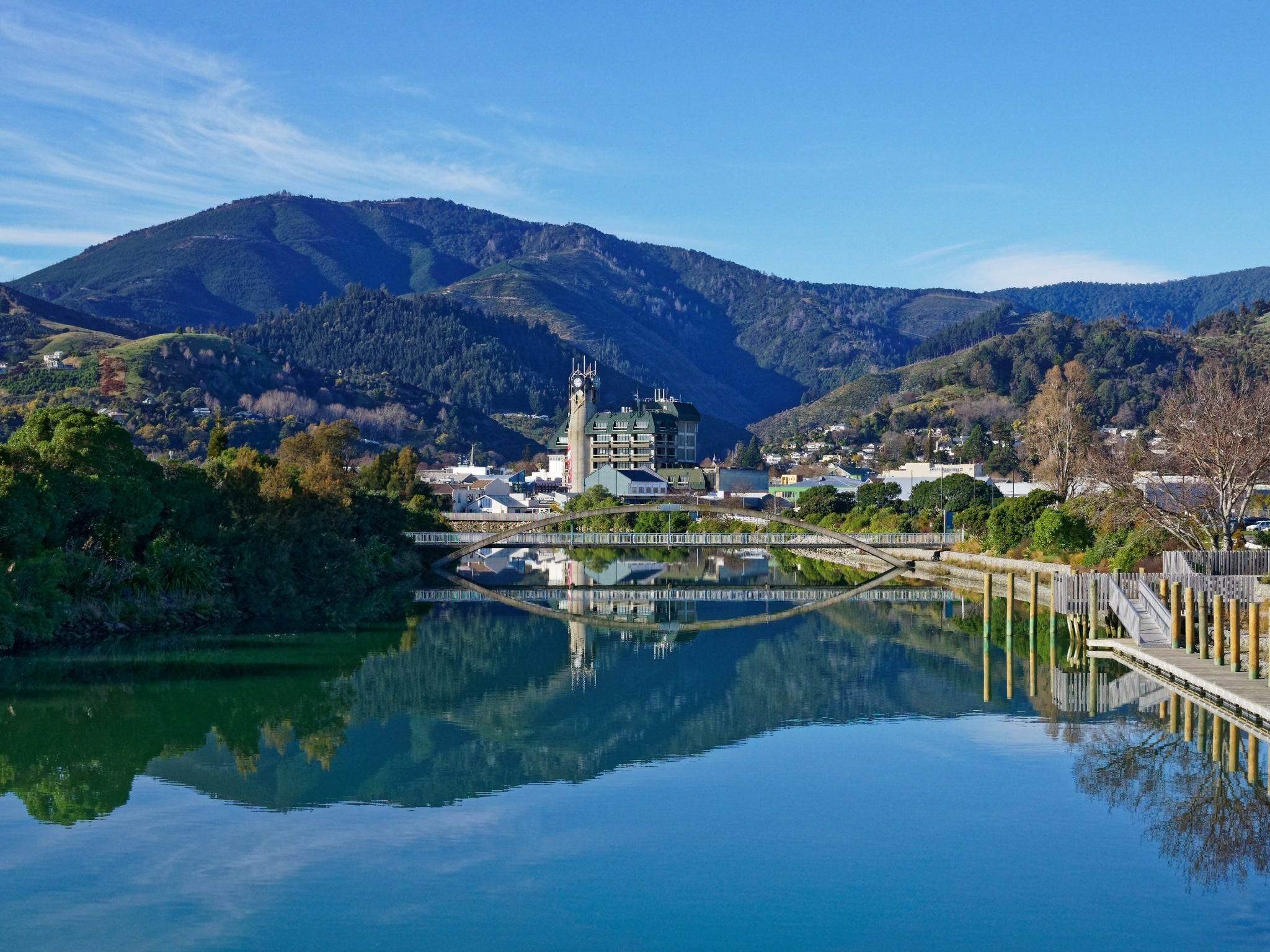The great return: What New Zealand’s border opening means for one Kiwi expat
After nearly two years of being unable to return home, Laura Hampson starts the countdown for February 2022


Your support helps us to tell the story
From reproductive rights to climate change to Big Tech, The Independent is on the ground when the story is developing. Whether it's investigating the financials of Elon Musk's pro-Trump PAC or producing our latest documentary, 'The A Word', which shines a light on the American women fighting for reproductive rights, we know how important it is to parse out the facts from the messaging.
At such a critical moment in US history, we need reporters on the ground. Your donation allows us to keep sending journalists to speak to both sides of the story.
The Independent is trusted by Americans across the entire political spectrum. And unlike many other quality news outlets, we choose not to lock Americans out of our reporting and analysis with paywalls. We believe quality journalism should be available to everyone, paid for by those who can afford it.
Your support makes all the difference.I got the call last Friday. “She’s gone,” my brother said at the end of the line. My beloved Nanny, aged 91, had passed away in her sleep after a bout of pneumonia, with my mum and brother by her side.
While it was Friday afternoon UK time, it was just after five in the morning on Saturday in New Zealand, where I’m from and where most of my family lives. I’d had a couple of days to prepare for this moment - a call to say she’d been taken to hospital on Wednesday night, a video call in which I told her I loved her and talked about her beloved home city of Liverpool on Thursday - yet hearing the news when I was halfway across the world from the people I wanted to hug the most wasn’t something I could prepare for.
This has been the reality of so many Kiwi expats during the pandemic. New Zealand shut its borders and went into lockdown on 19 March last year, just as Covid began to sweep across Europe and as the UK entered a lockdown of its own. Over the past year and a half, the little nation at the end of the world has been something of a Covid success story as, up until the last few months, it had managed to keep the virus locked out. That was until the Delta variant landed and spread far and fast.
Part of the reason New Zealand was able to keep the virus out for so long was its strict managed isolation and quarantine (MIQ) scheme, which was introduced as the borders shut. This saw Kiwis who returned to New Zealand - and it was only Kiwis, no non-citizens have been able to enter for 18 months - spend 14 days in hotel rooms across the country. Once they had landed in New Zealand, they were shepherded to these government-mandated facilities, subsisting on hotel food and one exercise break per day for two weeks, before being able to go home and see their families.
There have been many iterations of this scheme over the past 18 months or so. In the beginning, any and every Kiwi who wanted to go home was allocated a hotel room and spent two weeks there without paying a dime - that’s if you could get there. After a series of cancelled flights over the space of two months, my brother managed to get back in July last year after he flew to the UK with the intent to travel at the beginning of March and ended up in lockdown here instead. Another friend who went back as soon as borders began to close paid upwards of NZ$5,000 (£2,586) for a one-way ticket back. Pre-pandemic, you could get return flights for as little as £800.
A friend who returned to New Zealand as borders closed paid upwards of NZ$5,000 (£2,586) for a one-way ticket. Pre-pandemic, you could get return flights for as little as £800
Further iterations of MIQ saw the New Zealand government begin to charge people for the two-week stay, with returnees forced to fork out NZ$3,000 (£1,551) if they planned to stay in the country for less than three months, a time period which was later upped to six months. As we entered 2021, it became even more difficult for Kiwis to get home. MIQ spots were released one at a time, at any time of day, and some who tried to grab a quarantine place said they were often nabbed by “bots”. Travel agents started offering their services to expats in the “Kiwis in London” Facebook group to line up coveted MIQ spots with a corresponding flight that landed the day the MIQ started. A friend of mine, who has a sick parent, had three of her friends taking “shifts” just to try and get her an MIQ slot, to no avail. She applied for an exemption MIQ space through the New Zealand government, but because her parent “isn’t dying”, she wasn’t granted one.
An overhaul came at the end of September, when the New Zealand government introduced a lottery system to its MIQ scheme. Not unlike waiting to buy a concert ticket, those looking to go home would be able to join a waiting room up to an hour before the MIQ slots were released and then, upon the release, were randomly assigned a number in the queue - first in line, first to choose a slot. The first release saw 26,000 people waiting for 3,000 slots.
As Covid spread across New Zealand over the past few months - mainly in the north island with its biggest city, Auckland, as the epicentre - calls to end MIQ have heightened, with many questioning why the country is still keeping people out when Covid has already arrived. The government then decided to shorten MIQ to seven days in a hotel, seven days at home.

Now, in what will be a relief to Kiwis like me who have built a life in another country but miss their family dearly, vaccinated citizens will be able to return to New Zealand from 13 February next year, bypassing the MIQ process completely and instead being able to isolate for seven days in their own home (or, in my case, my mum’s house). From April next year, vaccinated travellers from across the world will be able to do the same.
I haven’t lived in New Zealand for a decade, first moving to Australia, then on to the UK five years ago. While living in the UK, I’ve been lucky enough to get home once every 18 months on average; the last time was back in February 2020 for my cousin’s wedding, just as we were beginning to hear murmurs of “this Covid thing”. Thankfully, video calls make being an expat easier than ever - but it’s still no substitute for the feeling of being able to give your mum a hug.
I think what the pandemic has taught me, and expats the world over, is how fortunate we were to live in an age where we could jump on a flight and be home to see our families in less than 24 hours (up to 36 hours if you include the stopover on the way to New Zealand). When travel restrictions finally return to pre-pandemic levels, this is something I’ll never again take for granted.
My Nanny’s funeral is this Friday and, if I could have, I would have been on a plane straight home to celebrate her life with my mum, brother, aunts, uncles and cousins. Yet even if I had done that, under current restrictions I wouldn’t have been out of MIQ in time to attend. Instead, you’ll find me at some ungodly hour on Thursday night, weeping over my laptop as I watch the livestream. I’m sure many expats echo my sentiment when I say that 13 February can’t come soon enough.
Join our commenting forum
Join thought-provoking conversations, follow other Independent readers and see their replies
Comments